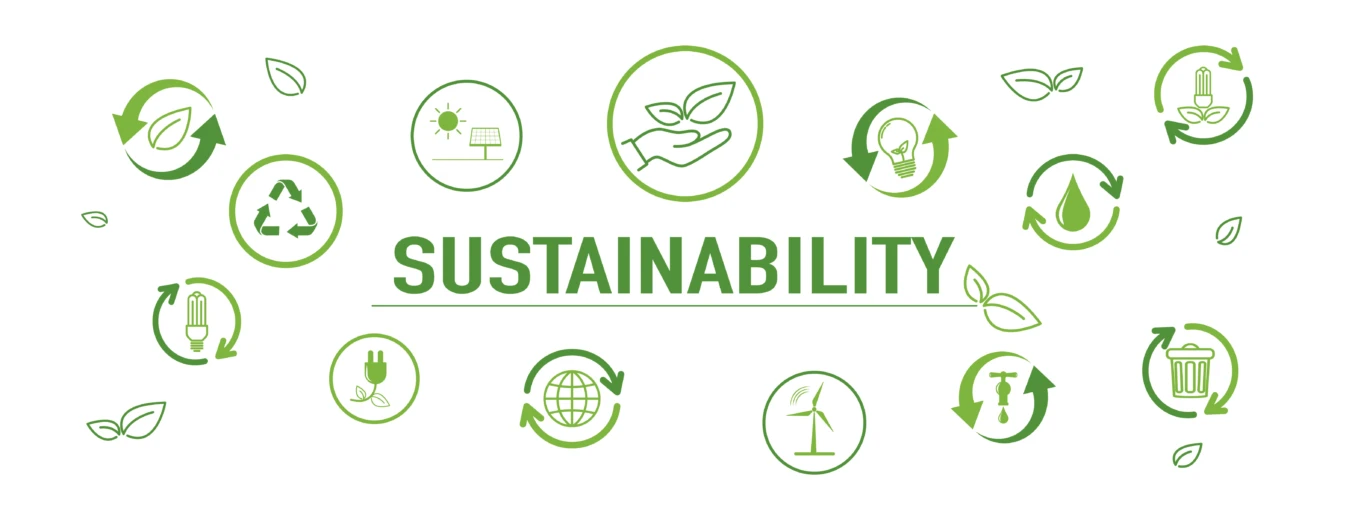With 2025 well underway, we’re looking forward to keeping you updated on the latest legislation, trends, and innovations that will affect fashion logistics in 2025 and beyond. But first, we’d like to take the opportunity to look back at the key developments of the past year. You can also check out our blog archive for more articles on this important topic.

Sustainability at the forefront of industry discussions
Sustainability was a major theme in the year’s key industry events. Two key events – the Global Fashion Agenda (GFA) summits in Copenhagen and Shanghai – highlighted the need for the fashion industry to move beyond aspirational targets by prioritising actionable, circular and sustainable practices. At the Shanghai summit, GFA also launched its GFA Monitor 2024 report, which provides a comprehensive guide for fashion brands to enhance circularity. The report outlined best practices for managing socio-environmental priorities, with a particular focus on circular production, as well as best-practice extended producer responsibility (EPR) policies to align with current regulations.
With circularity being such an important topic, many more fashion brands – both big and small – need to be able to take their first steps towards circularity. That’s why our Renewal Workshop team has developed RESCUE, which focuses on returned garments that are already damaged when they arrive back at our warehouse. We sort the returned items, identify those that can be repaired to a like-new standard and carry out a streamlined repair process, ensuring brands can profit from each renewed item.
Legislators continue to prioritise sustainability
Extended Producer Responsibility (EPR), introduced in 2023 in an amendment to the 2019 Waste Framework Directive, has had a significant impact on the EU regulatory landscape for fashion. The basic principle of EPR legislation is to hold manufacturers and importers responsible for the entire lifecycle of products, from production to end-of-life. This shift of the financial burden of managing the end-of-life stage of garments to manufacturers results in a clear incentive to produce more resilient products. It also encourages manufacturers to prioritise the use of materials with high recyclability, allowing them to make better use of waste streams.
The impact of the EU Green Deal on the fashion industry
EPR was far from the only piece of relevant legislation to impact the fashion industry in 2024. Indeed, several closely related pieces of EU legislation were introduced, forming the basis of a holistic sustainability framework for the industry.
Ecodesign for Sustainable Products Regulation (ESPR):
The ESPR, in force as of July 2024, establishes a framework for setting eco-design performance requirements for textile products. In practice, this means that EU member states have been introducing increased durability standards for garments – and will continue to do so in the coming years.
Digital Product Passport:
Under the ESPR, by 2030 every textile product sold in the European Union will require a Digital Product Passport (DPP) – most likely in the form of a scannable QR code. Once scanned, it will provide information on the product’s origin, material composition, supply chain, sustainability and recyclability. This will help to improve transparency for consumers and make it easier for fashion brands and textile recyclers to improve their logistical efficiency by facilitating the sorting and treatment of end-of-life items.
Action on green claims and greenwashing:
In parallel with its measures to increase scrutiny around textile waste, the EC also intends to introduce stricter regulations on misleading sustainability claims that may influence consumers to choose one brand over another (‘greenwashing’). After adopting a proposal for a directive on green claims in 2023, the EC published its final report on the matter last year, paving the way for the European Parliament to introduce practical anti-greenwashing legislation: the Green Claims Directive.

Looking ahead to 2025: Innovation to drive sustainable growth
Alongside regulatory progress, innovation continued to be a key theme in 2024, from AI to AR to warehouse automation. For example, virtual try-on experiences can help to reduce the number of returned products, helping to lower the overall carbon footprint of your logistics operations. Rethinking logistics processes will also be critical to meeting regulatory requirements – helping you to achieve greater insight into the end-life of products, as well as providing effective repair and recycling services to customers. And whether it’s by helping you implement RFID tags or implementing circular solutions, the right third-party logistics (3PL) provider can be key to simplifying regulatory compliance.
Want to find out more about getting your brand prepared for future regulatory requirements? Get in contact today for a free consultation with a Bleckmann expert!

















